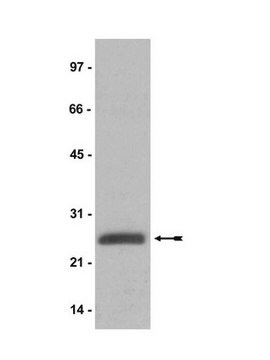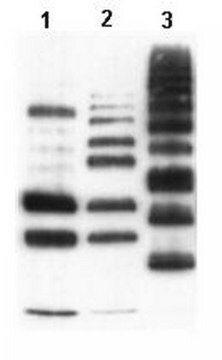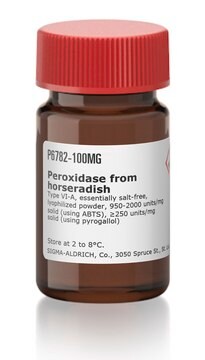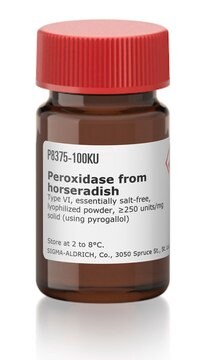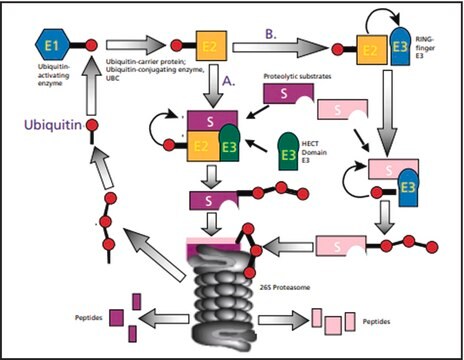MABE1119
Anti-H2AK15ub Antibody, clone EDL H2AK15-4
clone EDL H2AK15-4, from mouse
Synonym(s):
Histone H2A, H2A, Histone H2A1
About This Item
Recommended Products
biological source
mouse
Quality Level
antibody form
purified immunoglobulin
antibody product type
primary antibodies
clone
EDL H2AK15-4, monoclonal
species reactivity
Drosophila, human, mouse
technique(s)
immunocytochemistry: suitable
western blot: suitable
isotype
IgG2bκ
NCBI accession no.
UniProt accession no.
shipped in
ambient
target post-translational modification
unmodified
Gene Information
human ... HIST1H2AG(8969)
General description
Specificity
Immunogen
Application
Immunocytochemistry Analysis: A representative lot detected H2AK15ub in U2OS cells (Wang, Z., et. al. (2016). Genes Dev. 30(8):946-59).
Quality
Western Blotting Analysis: 2 ug/mL of this antibody detected Ub-Lysine15 H2A and H2AK13, 15R nucleosome lysates.
2 mg/mL
Target description
Physical form
Other Notes
Not finding the right product?
Try our Product Selector Tool.
Storage Class Code
12 - Non Combustible Liquids
WGK
WGK 1
Certificates of Analysis (COA)
Search for Certificates of Analysis (COA) by entering the products Lot/Batch Number. Lot and Batch Numbers can be found on a product’s label following the words ‘Lot’ or ‘Batch’.
Already Own This Product?
Find documentation for the products that you have recently purchased in the Document Library.
Our team of scientists has experience in all areas of research including Life Science, Material Science, Chemical Synthesis, Chromatography, Analytical and many others.
Contact Technical Service
